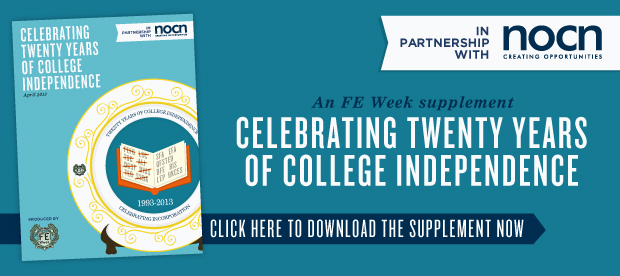Public confusion about the identity of a “college”, poor media perception of FE and a lack of skills among college press officers combine to prevent the sector getting better media coverage, it is argued.
A brief study of journalists’ perceptions of the sector for FE Week points to a continued poor understanding among news editors — the “gatekeepers” of the national media.
But it also reveals a failure among college press officers to spot and promote good stories, suggesting a lack of practical journalistic skills and experience.
Education correspondents interviewed for the study said it was rare for a college press officer to really show a clear understanding of what makes a story.
One said: “Despite having media studies degrees, they don’t seem to understand the difference between marketing and communications.”
Janet Murray, (pictured) a regular writer for FE Week and the Guardian and founder of the Last Word media consultancy, said: “People constantly come to me with stories about buildings and not policy or people. There is a clear lack of training and expertise.
“There is a lack of space in the media and editors want the nitty-gritty about education maintenance allowances and apprenticeships.”
Liz Lightfoot, former Daily Telegraph education correspondent, said there was a perennial problem of attitude among news editors — “One comment from a news editor was that everyone has been to school and knows about university, but not everyone knows about further education.”
But she echoes Murray’s concern, saying “press officers need to rise to the challenge”.
There is no doubt that media coverage has improved since incorporation, with the rise of national online services and high-profile trade media.
TES FE Focus was launched in 1995 and quickly followed by Guardian Further. While the latter closed and FE Focus has moved to become online only, the not-even-two years old FE Week is now the only newspaper dedicated to the sector.
Problems of a poor public understanding of FE have been revealed in work by the Association of Colleges (AoC).
A survey for the AoC by ICM Research in 2011 showed the confusion in the public mind about the identity of a college.
Two thirds (72 per cent) of the public thought Trinity College Cambridge was an FE college and over half thought the same of Eton.
Just over half believed they were still run by local authorities and one-in-five said they weren’t inspected by Ofsted. Nearly a quarter assumed they took less pastoral care of students than schools.
But once it was explained what colleges did, their impression was very favourable and more than 80 per cent said they would be happy for their children to go to one and thought they made an important contribution to the local economy.
Around 90 per cent concluded they gave people a second chance at education.
One answer may be to make colleges “a recognisable ‘brand’.” Work for the AoC by the consultancy Branded concluded, however, that this would be highly problematic.
First, unlike the word ‘university’ which has a legal definition, the word ‘college’ has an established usage elsewhere in schools.
Second, FE colleges cover a diverse range of activities targeted at different audiences, making an all-encompassing brand potentially so broad as to be meaningless or even self-defeating.
One possibility suggested by Branded is for the sector to agree on a common set of values over and above individual products and services.
They could then adopt a kitemark or Charter mark, indicating membership of the AoC for example, in the way that travel agents might belong to ABTA.
It is the sort of proposal that makes the government’s proposed Chartered status for the further education sector, currently out for consultation, possibly even more attractive.


Your thoughts